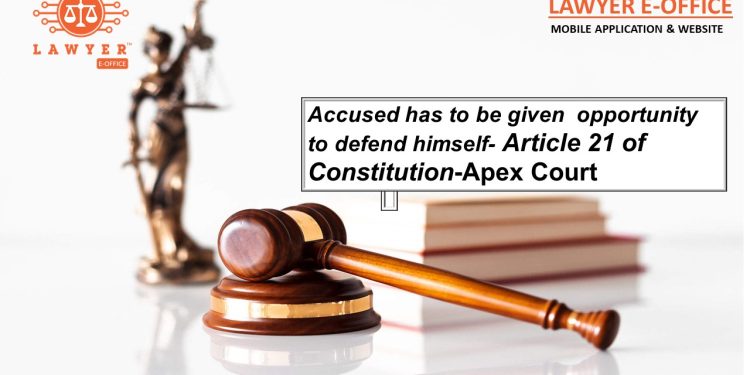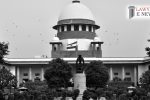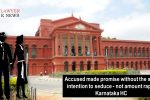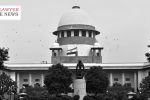Accused has to be given opportunity to defend himself- SC

D.D- January 18, 2022.
Apex court observed that Appellant was not given a fair opportunity to defend himself and this is classic case indicating the disturbing tendency of Trial Courts adjudicating criminal cases involving rape and murder in haste.
Facts – Brijlal Yadav (PW-2) his wife Kalawati (PW-1), two sons and his daughter went to attend a function – returning back – realized daughter missing – searching – at about 5:00 AM on the next day found her lying near a hand-pump in an unconscious condition – District Scientific Officer, conducted inspection of the place of incident – cause of the death was given as asphyxia, neurogenic shock due to neck pressing, severe injuries and bleeding in vagina and anal opening by committing rape forcefully – the Appellant and Satish arrested – seized blanket and shawl of the deceased and clothes worn by appellant – Charges framed – Sessions Judge sentenced them to death – High Court answered the reference against the Appellant and Satish upholding the Capital punishment – Aggrieved Appellant and Satish approached Supreme court. No direct evidence regarding the kidnapping, rape and murder – based on circumstantial evidence – medical evidence shows that she was raped and killed – green shirt of check pattern whose two front black buttons broken – has blood spot and one jeans pant of sky blue colour with dark blood spot seized from the Appellant – report of Forensic Science Laboratory – all the alleles observed in the male DNA profile of Satish were found to be the same as the DNA profile observed from the prosecutrix’s vaginal and rectal slides – female autosomal STR DNA profile detected on the deceased prosecutrix, dhoti and underwear of Satish – appellant failed to prove an alibi – No explanation for the scratch injuries on the body of Appellant.
Apex Court summarized the principles governing interference in a criminal appeal by special leave as follows: –
(1) that this Court would not interfere with the concurrent finding of fact based on pure appreciation of evidence even if it were to take a different view on the evidence;
(2) that the Court will not normally enter into a reappraisement or review of the evidence, unless the assessment of the High Court is vitiated by an error of law or procedure or is based on error of record, misreading of evidence or is inconsistent with the evidence, for instance, where the ocular evidence is totally inconsistent with the medical evidence and so on;
(3) that the Court would not enter into credibility of the evidence with a view to substitute its own opinion for that of the High Court;
(4) that the Court would interfere where the High Court has arrived at a finding of fact in disregard of a judicial process, principles of natural justice or a fair hearing or has acted in violation of a mandatory provision of law or procedure resulting in serious prejudice or injustice to the accused;
(5) this Court might also interfere where on the proved facts wrong inferences of law have been drawn or where the conclusions of the High Court are manifestly perverse and based on no evidence.”
Apex court stated that accused is entitled for a fair trial which is guaranteed under Article 21 of the Constitution of India. In respect of the order of conviction and sentence being passed on the same day, the object and purpose of Section 235 (2) CrPC is that the accused must be given an opportunity to make a representation against the sentence to be imposed on him.
In this case Apex Court held that no evidence that no probability of rehabilitation and reformation of the Appellant and accused had no criminal antecedents before the commission of crime , their was nothing adverse reported against his conduct in jail because of that death sentence commuted to life imprisonment for a period of 30 years Without remission. Appeals partly allowed.
Bhagwani
Versus
The State of Madhya Pradesh






